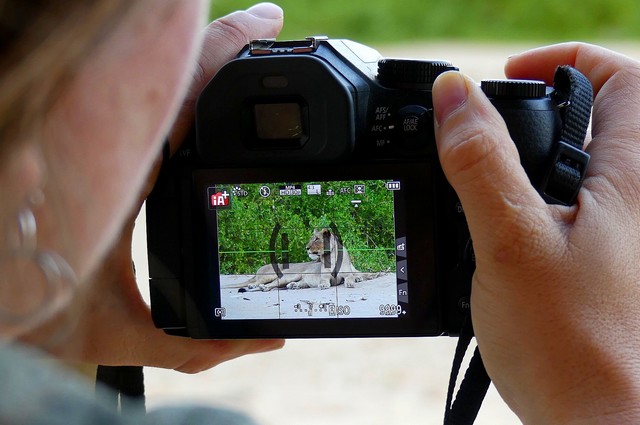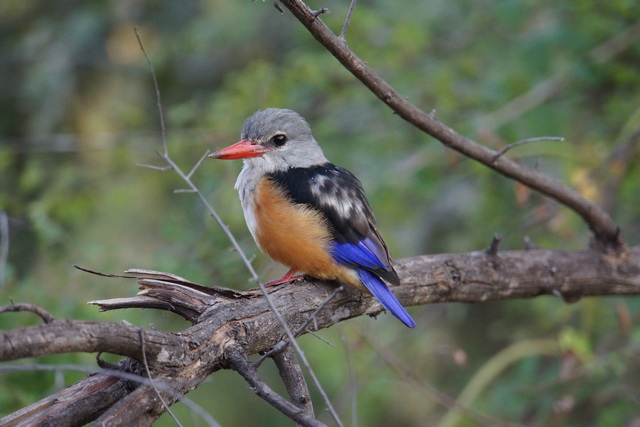COVID-19 continues to be a concern for those looking to travel internationally. Here are some frequently asked questions as well as some country-specific updates. This blog is not meant to serve as a comprehensive clearinghouse of info and should not take the place of any advice from a medical professional, the WHO or the CDC, but should give travelers and those considering travel some idea of what the current situation is across the countries where our guests travel. All of this information is subject to change and may already be obsolete. Reach out to us for the most current and up-to-date information prior to travel.

Can I travel internationally during the COVID-19 pandemic?
YES! There are considerations that you should take into account when traveling during the era of COVID. Per the CDC, “do not travel internationally until you are fully vaccinated...fully vaccinated travelers are less likely to get and spread COVID-19” but there are still risks to consider and lots of details to take into account when looking at international travel.
Do I need to get tested for COVID-19 before traveling?
Most countries (and some airlines) are requiring a negative PCR test not older than 72 hours from the time of arrival in the country. Many countries are also asking visitors to fill out a health declaration form as well. The Galapagos has even gone a step further and required vaccination for entry to the archipelago, though this is currently only a temporary measure. We may see these requirements change going forward. Only a few countries are accepting proof of recent recovery from COVID-19 in lieu of a negative test result.
Do I need a COVID-19 test before boarding a flight to the United States?
To get back to the United States, US citizens need a negative antigen test. The great part about these tests are that they offer quick results and are widely available - sometimes even at your safari camp, in-town hotel or in your departing airport. Often, these cannot be prepaid but we’ll have all the details and help to have these arranged before you travel.
Do lockdowns and closures affect tourists?
Lockdowns and closures typically exempt travelers and tourists so guests can feel confident that their itineraries will proceed as planned regardless of what the current COVID situation is in the country they are visiting. However, there is some nuance here, so reach out if you have questions. For example, if restaurants are closed you might have to make do with only eating take-out while in larger towns and cities. Masks are universally required on flights anywhere and most countries are requiring masks in close quarters, in gatherings or at other times and are advocating social distancing. Accommodations and activities may require daily temperature checks.
What happens if I test positive for COVID-19 while overseas?
In the unlikely event that guests test positive during their trip, a 10-14 day quarantine will likely be required and medical treatment will be at the guest’s own expense which is why it is important to have travel insurance that includes medical coverage, trip interruption and evacuation coverages specifically for a possible COVID infection. What exactly will happen varies from country to country. Guests can expect to need to stay in country until such a time that they complete the quarantine and then test negative. Again, this is unlikely given the high vaccination rates among safari guides and staff, the mostly outdoor nature of activities on safari and the strict COVID protocols our camps and partners have put in place continent-wide.
Are there any benefits to traveling now?
Yes. Right now visitor numbers remain low so guests are finding some solitude in really popular spots. Destinations like the Galapagos are offering unheard of last-minute discounts to fill departing cruises later this year and into 2022. Guests are finding that their hosts and guides are incredibly enthusiastic and grateful to have visitors returning and you can expect to be treated like family everywhere you go. Demand is picking up significantly for 2022 and beyond so our advice is to book soon. Otherwise, availability is expected to become more of an issue meaning that you’ll have to wait even longer to take that dream trip you have been waiting for.
What’s happening with COVID-19 in Africa?
Countries across Africa are currently reporting significant decreases in new cases per day as recent closures and restrictions had the desired effect of getting numbers back in check. Broadly speaking, vaccination rollout is slowly increasing day-by-day as more and more vaccinations are going in arms. Vaccine supplies are slowly increasing but everyone should consider putting their voice into supporting vaccine equity (see below) for this part of the world. We are truly all in this together!

Country Updates:
Namibia
The Namibian government has reverted to their previous requirements for entry, meaning anyone arriving with a negative PCR test result less than seven days old will be able to enter without further restrictions. Approximately 10% of the population is vaccinated. All tourists must have a negative PCR result not older than 72 hours before boarding their flight to Namibia. Tourists must complete a health questionnaire which will need to be submitted, together with a full travel itinerary, to Health Ministry staff when they first arrive at the airport.
South Africa
Approximately 15% of the population is vaccinated. A negative COVID PCR test certificate within 72 hours of departure from the country of origin is compulsory. Completion of screening and health questionnaires on arrival. Any symptomatic travelers will be required to undergo further testing and should they test positive, they must quarantine at their own cost at a designated facility.
Botswana
Approximately 15% of the population has been vaccinated. Negative PCR not older than 72 hours and health questionnaire required on arrival. Vaccines are rolling out and case numbers have continued to decline after the most recent peak.
Zimbabwe
Arriving passengers must register for a Trusted Travel (TT) code before traveling. Travelers are required to have a negative PCR COVID-19 test issued by a recognized facility within 48 hours of arrival. There has been confusion about a required quarantine for guests arriving in Zimbabwe. This is not the case – no quarantine is required unless travelers exhibit symptoms and test positive upon arrival, or if they are coming from, or transiting through India en route to Zimbabwe.
Zambia
A negative COVID PCR test certificate within 72 hours of arrival is compulsory.
Travelers are required to fill out a screening and health questionnaire on arrival. A quick health screening will take place, including a temperature check. Any symptomatic travelers will be required to undergo further testing and should they test positive, they must quarantine at their own cost. All travelers coming from countries deemed “high risk” will be tested for Covid-19 by PCR test upon arrival into Zambia (approx USD$50.00 per person subject to change, payable by the traveler). Travelers who receive a negative result or have proof of vaccine will be exempt from 14-day mandatory quarantine. These rules do not apply for arriving children under age 5 – they are exempted.
Tanzania
Arriving passengers, in addition to presenting their negative PCR test, guests are also subject to a health screening including a temperature check and COVID-19 rapid test. The Tanzanian government has not been as transparent as hoped so data is trickier to come by and fairly unreliable for this country. It is widely assumed that their rates and cases are similar to other countries in the region like Kenya, Uganda and Rwanda.
Kenya
Arriving passengers must register for a Trusted Travel (TT) code before traveling. They must also fill out a health surveillance form. They will then receive an email with a QR code that they should print and carry when traveling to Kenya. Guests must also apply for a visa online before visiting Kenya as it is no longer possible to obtain one on arrival. Guests must present their COVID negative certificate, TT code and the QR code generated from their Traveller Health Surveillance Form at the health check desk before proceeding to immigration. They will also be screened for current signs of infection. Travelers under the age of 18 are required only to have a Covid negative certificate.
Uganda
Currently at only a CDC Level 2 - Moderate Risk. While there was a little confusion recently about the possibility of guests needing to test on arrival, that has since been clarified. Uganda’s Civil Aviation Authority announced on 16 Sep 2021 that individuals from Category 2 countries (except India) who have received full COVID-19 vaccination and have no signs of COVID-19 will be exempted from the PCR tests. The USA is a category 2 country. Please note, travelers who have had COVID-19 vaccination and hold a certificate must still present a negative COVID-19 PCR test certificate taken within 72 hours from the time of sample collection to boarding aircraft. KLM Airlines is requiring rapid antigen testing for all passengers boarding flights to the Netherlands (and onward destinations) from Entebbe International Airport (EBB). Testing is available at a clinic inside the airport and costs $35 per test, with an approx. 15 min wait time. The test cannot be pre-paid. This test is in addition to the negative PCR test required for departure from Uganda. There is a four (4) hour advance check-in requirement at EBB.
Rwanda
Rwanda recently lifted the 7-day mandatory quarantine for people arriving from India and Uganda. Additionally, Rwandair is resuming flights between Entebbe and Kigali as of September 17th. This means you once again have the flexibility to combine a Rwanda/Uganda safari without restrictions other than presenting a negative PCR test.
Madagascar
For US citizens, entry is limited to diplomats, technicians working in strategic sectors, and civil servants with special travel orders. This means the country is still essentially closed to US tourists for now. While vaccination efforts are making progress, Madagascar is still a very poor country with very limited resources. Its a few months behind the progress that other countries have been making.
Ecuador
55% of mainland population, close to 90% of Galapagos population and nearly 100% of Galapagos cruise staff and guides vaccinated. Arriving passengers to Ecuador’s mainland must provide a certificate of a negative Covid-19 PCR test from within 72 hours of travel. Vaccinated passengers arriving more than two weeks past their final immunization date may enter the mainland without a negative PCR test. New temporary entry requirements for the Galapagos Islands have been announced to prevent the spread of the Delta variant in the archipelago. Effective September 1 and continuing for 15 days, the following entry requirements will apply: all passengers must submit results of a negative RT-PCR test no older than 72 hours prior to boarding and all passengers older than 16 must present proof of vaccination completed 14 or more days before boarding. Negative antigen test results are no longer allowed as a means of entry. The temporary entry requirements will be re-evaluated after the initial 15 day period. Passengers must fill out and sign the Traveler’s Health Record, preferably in advance, which will be delivered to the staff of the Ministry of Public Health.
Ready to plan your adventure or have any questions? Ask me - I’ve been there!
Your friendly adventure travel expert,
Chris Moriarty



